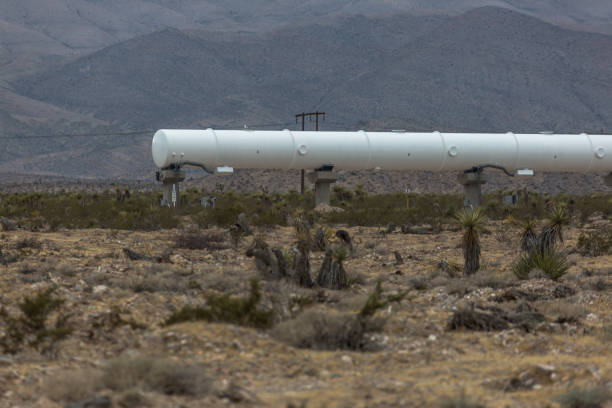As humanity’s reach extends beyond our planet, space mining is emerging as a frontier of immense potential. The prospect of extracting valuable resources from asteroids and other celestial bodies promises to revolutionize industries on Earth, from technology to manufacturing. However, the development and operationalization of space mining come with unprecedented risks and challenges. In this context, insurance is poised to play a crucial role in supporting this burgeoning sector. Here’s how insurance is shaping the future of space mining operations.
Table of Contents
ToggleNavigating the Risks of Space Mining
1. Understanding Space Mining Risks
Space mining involves extracting minerals and resources from asteroids, moons, and other extraterrestrial bodies. This ambitious endeavor faces numerous risks, both predictable and unforeseen. Unlike terrestrial mining, space mining operations occur in an environment fraught with extreme conditions, including radiation, microgravity, and the vast distances of space.
a. Technical Failures
The complexity of space mining technology—ranging from spacecraft and drilling equipment to advanced robotics—introduces the risk of technical failures. A malfunction in any component can result in significant financial losses, delays, or even the failure of an entire mission.
b. Space Environment Hazards
Space presents unique hazards, including space debris collisions, radiation exposure, and micrometeoroid impacts. These risks can damage equipment, compromise safety, and affect the success of mining operations.
Insurance Solutions for Space Mining
1. Comprehensive Space Insurance Policies
Insurance for space mining is not a one-size-fits-all solution. Given the complexities involved, specialized insurance policies are required to address the unique risks associated with space operations.
a. Launch and In-Orbit Insurance
The journey to space involves inherent risks, from launch failures to in-orbit accidents. Launch insurance covers the cost of failed launches or in-flight anomalies, while in-orbit insurance protects against damage or loss of equipment while in space. Both types of insurance are crucial for mitigating the financial impact of space missions.
b. Operational Risk Insurance
Once in space, mining operations are subject to various risks, including equipment malfunction and environmental hazards. Operational risk insurance provides coverage for damages and losses that occur during the mining process, offering protection against unforeseen challenges.
2. Innovative Insurance Models
As space mining technology evolves, insurance models must adapt to address new and emerging risks. Several innovative approaches are being explored to support this industry.
a. Parametric Insurance
Parametric insurance is based on predefined parameters or triggers, rather than actual loss assessments. For space mining, this could involve policies that automatically pay out based on specific criteria, such as the failure of a launch or a significant operational disruption. This model can streamline claims processing and provide timely support.
b. Consortium Insurance
Given the high costs and risks associated with space mining, collaborative insurance models such as consortium insurance are becoming increasingly relevant. In a consortium, multiple insurers share the risk, making it more feasible for individual companies to secure coverage. This model spreads the financial risk and provides a more robust safety net for space mining ventures.
Supporting Innovation and Investment
1. Facilitating Investment in Space Mining
Insurance plays a critical role in attracting investment to the space mining sector. Investors are often wary of the significant risks involved in space operations. By providing coverage that mitigates these risks, insurance makes space mining projects more financially viable and attractive to investors.
a. Risk Mitigation for Investors
By covering potential losses and operational disruptions, insurance reduces the financial uncertainty associated with space mining. This risk mitigation encourages investment from venture capitalists, private equity firms, and other stakeholders who are essential for funding and advancing space mining technologies.
b. Enhancing Financial Feasibility
Insurance helps in enhancing the financial feasibility of space mining projects by protecting against potential financial losses. This support allows companies to allocate resources more effectively, focusing on innovation and development rather than worrying about catastrophic financial setbacks.
2. Promoting Technological Advancement
Insurance not only supports current space mining operations but also promotes technological advancement by reducing the financial risks associated with experimentation and innovation.
a. Encouraging Research and Development
Insurance coverage can incentivize research and development in space mining technologies by providing a safety net for experimental missions and new technologies. This support enables companies to explore innovative solutions and push the boundaries of space mining capabilities.
b. Supporting New Entrants
As the space mining industry grows, insurance helps lower the barriers to entry for new companies and startups. By offering tailored insurance solutions, insurers facilitate the participation of smaller players and innovators, fostering a more dynamic and competitive industry.
Addressing Challenges and Future Outlook
1. Evolving Regulatory Frameworks
The insurance industry must navigate evolving regulatory frameworks for space activities. As international regulations and space laws develop, insurers need to stay informed and adapt their policies to ensure compliance and address emerging risks.
2. Managing High Costs
The cost of space insurance can be substantial, reflecting the high risks and complexities involved. Companies must balance the cost of insurance with their operational budgets, finding ways to manage expenses while securing adequate coverage.
3. Enhancing Risk Assessment
Accurate risk assessment is crucial for developing effective insurance policies. Insurers must continuously refine their risk assessment models to account for new technologies and operational challenges in space mining.
Conclusion
Insurance is set to play a pivotal role in the development and success of space mining operations. By providing comprehensive coverage for the unique risks associated with space missions, insurance supports the financial stability and advancement of this exciting industry. As space mining continues to evolve, innovative insurance models and collaborative approaches will be essential in managing risks, attracting investment, and promoting technological progress. Through these efforts, insurance is helping to pave the way for a new era of space exploration and resource extraction.

